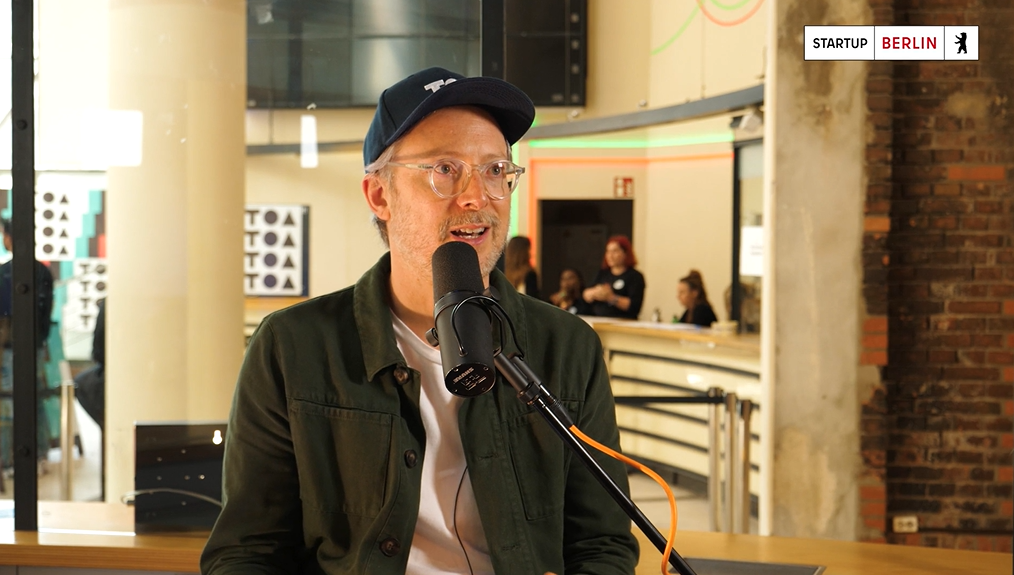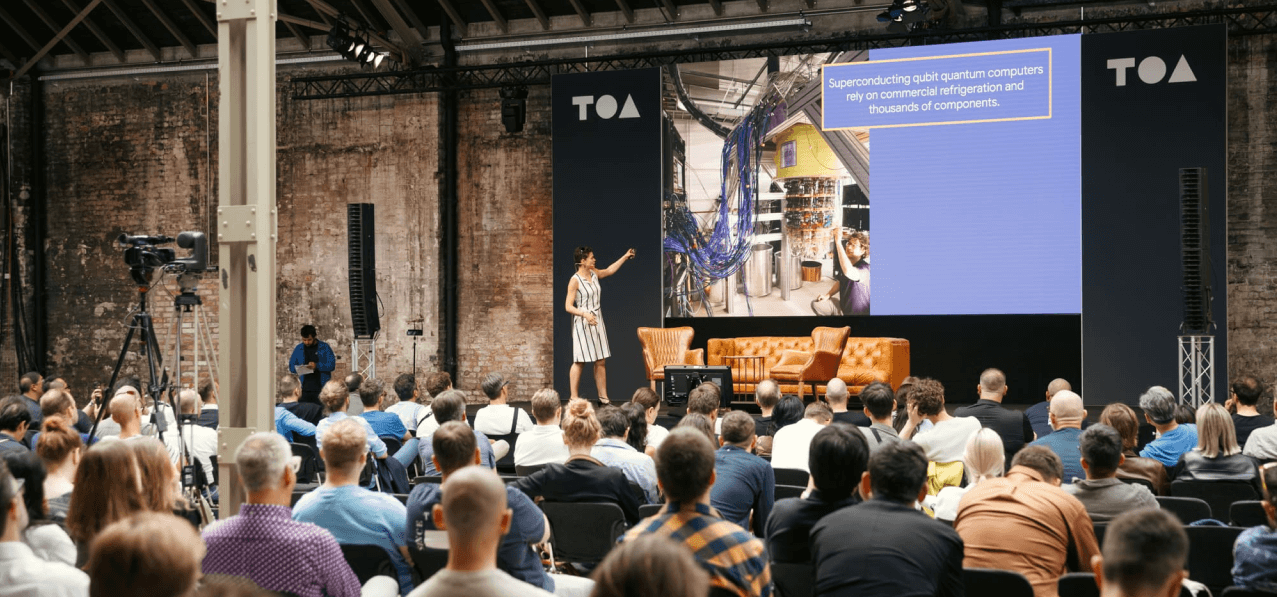From E-commerce to Deep Tech: Building Berlin's Tech Future
A Conversation with TOA Founder Niko Woischnik
A veteran of Berlin's startup ecosystem, Niko Woischnik has been instrumental in shaping the city's tech landscape. As founder and managing director of Tech Open Air (TOA), he has created one of Europe's most influential tech festivals. In this interview, he shares his vision for Berlin's future as a global tech hub and discusses the challenges and opportunities that lie ahead.
What is TOA about?
Our mission is to help people and organizations become future-proof. TOA started as the world's first crowd-funded conference and has evolved into a community of thousands of technology enthusiasts gathering in Berlin each summer. For four days, Berlin transforms into a melting pot of tech founders, investors, creatives, and industry leaders who will shape our days well after tomorrow.
Why are TOA and Berlin a perfect match?
The goal has always been to build a bridge between the startup world and other stakeholders in business and society at large (i.e. creative industries, academia, media and politics). Before launching TOA, we held open town hall meetings for the startup community to weigh in with ideas. We then financed the first edition by becoming the world's first crowdfunded festival. That grassroots beginning resembles the greenfield nature of the Berlin economy, which, unlike other European capitals, does not have as many legacy industries. That's what TOA is all about - community-driven and built from the ground up.
What is your vision for the Berlin tech ecosystem?
I'd like to see the Berlin tech ecosystem fund and support more deep tech startups. Berlin's ecosystem started with a relatively low-tech foundation, which had its advantages - it enabled massive successes in e-commerce, giving rise to companies like Zalando, DeliveryHero and HelloFresh. It put Berlin on the map, but looking ahead, I hope to see a greater focus on frontier technologies. There are already promising signs. The ecosystem is steadily moving in that direction.
Which specific deep tech areas do you see as particularly promising for Berlin?
Since Berlin lacks dominant, traditional industries, deep tech here doesn't have a specific anchor. However, the city's history and culture of freedom have definitely attracted a thriving crypto community. Next to crypto, I'd like to see Berlin play an even bigger role in AI, space tech and the bio-economy. We're also seeing exciting developments in quantum technology, digital health and photonics. This is driven more by personal passion than a clear structural advantage for these fields. However, Berlin is a greenfield and it will be exciting to see which sectors emerge as the strongest.

What challenges need to be overcome to make this transition?
Building a stronger deep tech ecosystem in Berlin requires all stakeholders to adopt a long-term perspective on tech development and commercial success. The Rocket Internet era focused on rapid operational execution to compete effectively in high-paced but relatively low-tech areas like e-commerce, marketplaces, and direct-to-consumer. In contrast, deep tech often involves longer product and sales cycles. Founders, talent, and investors need to approach it with patience and a commitment to sustained growth.
Could Berlin play a leading role in the developing AI ecosystem?
Absolutely. It all comes down to talent. Great talent creates innovative solutions that attract investors and customers. Berlin remains an attractive place to live, and as long as the city continues to draw top talent, it has the potential to compete in any field. While the global AI powerhouses are predominantly based in the US and China, Berlin has already established itself as Germany's leading AI hub, hosting the highest concentration of AI startups in the country.
What specific steps do you think should be taken to strengthen Berlin's position in the AI field?
Looking at Paris and French policy-making provides valuable insights for Berlin's development. A dedicated national AI program, similar to France's "AI for Humanity," could unify Germany's efforts, with Berlin as the ideal center. This should be complemented by AI-friendly policies and funding, including R&D tax credits, innovation grants, and increased startup funding. Berlin could particularly benefit from more investment in open data infrastructure and access for startups to create smart city services. Additionally, strengthening academic programs and research through expanded AI curricula and industry partnerships would attract talent and drive knowledge sharing. Government procurement programs specifically designed for startup solutions could further boost Berlin's ecosystem.
What is the role of startups in building a tech ecosystem?
Startups are essential for pushing boundaries. They keep big companies on their toes, challenge the status quo and drive industry disruption. Every large company eventually faces the innovator's dilemma, where maintaining the status quo conflicts with the need to innovate. That leap from zero to one - disruptive innovation - is something only startups, along with hackers and developers, can truly achieve.
What can corporates do better in working with startups?
First, they should devote more resources to investing in startups and becoming their customers. For many young companies, establishing a customer relationship with a large corporation is a lengthy process - streamlining these processes would be a quick win that would help startups gain traction. Corporations also need to be open to cannibalising parts of their own business. Protecting the status quo without experimenting at some level makes it hard to stay competitive against emerging startups. Embracing change, even at the expense of existing business, is key to fostering innovation. After all, if you can't build it, buy it!
What makes a successful collaboration between a corporate and a startup that you consider exemplary?
Corporates often benefit from collaborating with startups since they learn about the fast-paced and agile ways startups build. However, startups frequently complain that such collaborations slow them down. In my opinion, rather than focusing on "collaboration," corporates should concentrate on becoming customers of startup products and services, investing in startups, or acquiring them outright. I'm not a huge fan of projects where startups are tasked with solving a company's problem. What is dubbed "collaborative" often means "customized." That is the work of agencies and consultancies. Startups want to build solutions that are programmatic and scalable. For all corporates out there: Rather than wanting startups to collaborate on your product, become a customer of their product!
What could the government do to help Berlin's startup ecosystem grow?
Ultimately, startups will go where they find exceptional talent, capital for all stages of development, minimal red tape and international exposure. Berlin should benchmark its efforts against other successful cities, such as Paris or Munich, which have made significant coordinated efforts and investments in recent years. The city government should learn from others and strive to be number one in Europe.
What specific regulatory changes or support programs would you like to see from the government to further strengthen the startup ecosystem?
I can think of a number of things: The government could introduce improved tax benefits for investors, similar to the UK's Enterprise Investment Scheme (EIS) and Seed Enterprise Investment Scheme (SEIS). Accelerated visa and residency programmes are needed to attract international talent. Improved data accessibility and open data initiatives are very important. We need data policies that give startups access to public datasets. Implementing dedicated procurement policies for local startups would be beneficial, as would streamlining regulatory processes and business registration procedures. In addition, providing subsidies for affordable workspace and creating more grant programmes with simplified application processes would help. We should also advocate for a standardised company formation process across Europe, as proposed by Andreas Klinger with the "EU Inc". Finally, facilitating international exposure through events such as the South by Southwest (SXSW) showcase in Berlin is crucial. And finally: I may be biased, but frontier tech events like TOA could use more support to compete with other European events like Web Summit, VivaTech or Slush, which receive millions of euros in annual government support.
Thank you, Niko, for sharing your insights into Berlin's tech ecosystem and your vision for its future.
We're looking forward to TOA 2025!
Stay tuned for more updates at https://event.toa.media/
----
Header image: © Tech Open GmbH





